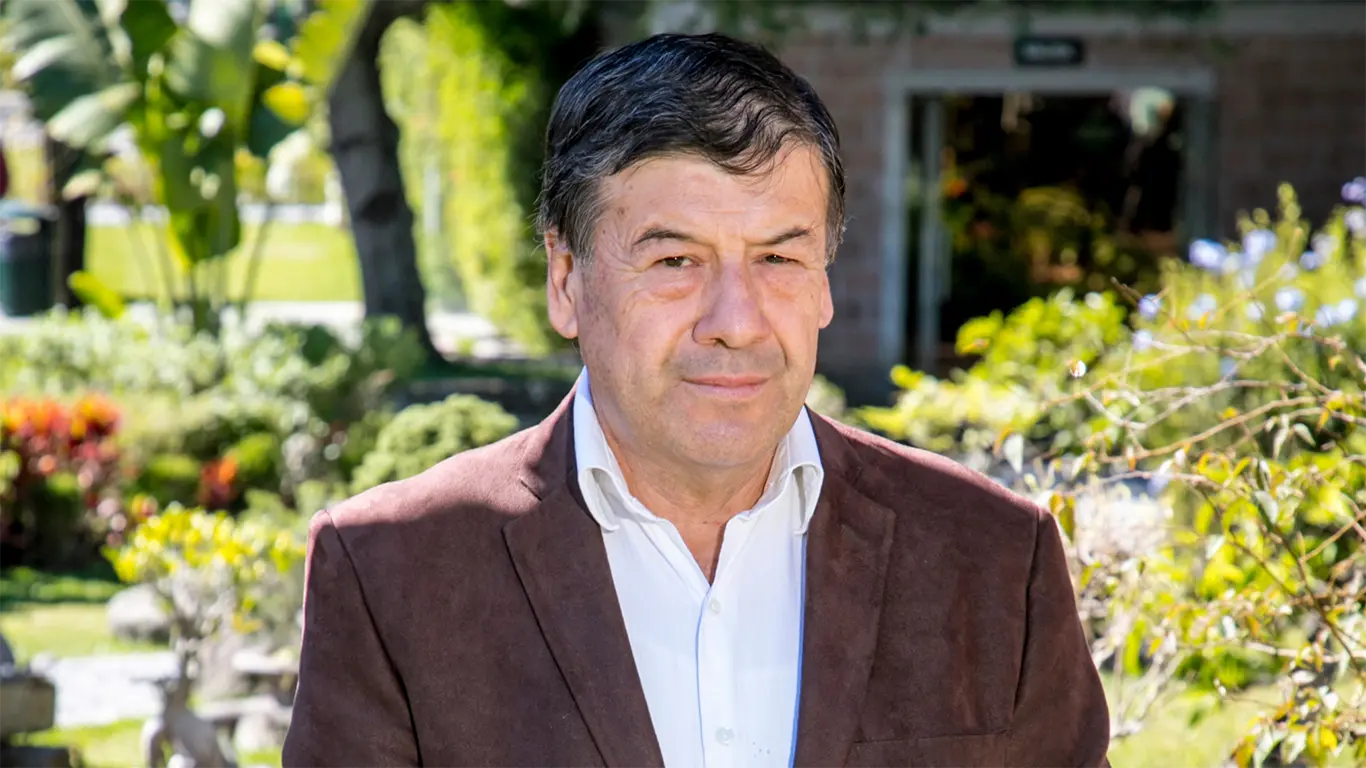Research professor and Organic Coffee Producer Esteban Escamilla Prado to Chair CEC’s Joint Public Advisory Committee (JPAC)
Tiohtià:ke (Montreal), 16 January 2024 — The Commission for Environmental Cooperation (CEC) is pleased to announce that Esteban Escamilla Prado, PhD, research professor at the Eastern University Regional Center (CRUO) of Chapingo Autonomous University (UACh) in Huatusco, Veracruz, has been named the new chair of the CEC’s Joint Public Advisory Committee (JPAC) for 2024.
Esteban Escamilla Prado is an agricultural engineer with an MA and PhD in tropical agroecosystems from the UACh College of Postgraduates. His doctoral dissertation centered on the study of organic coffee quality in Mexico and he is currently the research director at the National Center for Coffee Research, Innovation and Technological Development (Cenacafé).
“I have had the fortune of working with Esteban this past year on JPAC initiatives. He brings to JPAC a wealth of policy experience, as well as private sector and academic leadership and I am thrilled to continue working alongside him in his new role as JPAC chair for 2024,” said Jorge Daniel Taillant, CEC Executive Director. “Previous to his appointment to JPAC, Esteban has worked closely with the CEC on multiple sustainability issues and on traditional ecological knowledge across Mexico and North America. He has been a leading voice among his JPAC colleagues, helping JPAC, the CEC, and its various committees, coordinate North American action on environmental protection. He brings welcome energy to the CEC, to his peers and to his colleagues, through many JPAC and other CEC initiatives. Following the outgoing JPAC chair, Octaviana Trujillo, I am confident that Esteban will continue to expand the constructive JPAC outreach and engagement that we have recently observed with the Traditional Ecological Knowledge Expert Group. I wish Esteban well and much success as the CEC’s new JPAC chair.”
Aside from his research and teaching responsibilities, Escamilla Prado dedicates part of his time to training and outreach work by offering certificate programs on comprehensive sustainable coffee cultivation, organic agriculture, biodiversity, sustainable land use and agroforestry. Throughout his professional career, he has participated in diverse activities related to comprehensive sustainable coffee cultivation in Mexico and various coffee-producing countries in Central and South America, with a focus on training and advising small-scale and Indigenous producer cooperatives. Since 2019, he has also been active in sustainable community programs focused on environmental recovery, led by Mexico’s Ministry of Social Welfare. He is currently participating in an international research program, conducted under the aegis of the World Coffee Research organization, on the genetic improvement of coffee varieties in Mexico and other countries in Africa, Asia and Latin America, aimed at making them more resilient to climate change.
“This year, in which the CEC celebrates its 30th anniversary, we have a great opportunity to strengthen North American integration and environmental cooperation while caring for its invaluable biocultural heritage through the promotion of climate justice, social inclusion and sustainable trade. In this sense, Canada, Mexico and the United States have the opportunity to promote a sustainable, supportive and resilient agri-food sector,” said Escamilla Prado.
As an organic coffee producer himself, he is a founding member of the “Catuai Amarillo” cooperative and the Federation of High Mountains Specialty Coffees (Incafesam), social enterprises that export organic coffee to the United States and Europe. Moreover, he is a member and the current president of the Steering Committee of the Mexican Certification Authority for Ecological Products and Processes (Certimex).
For more information about the CEC’s Joint Public Advisory Committee, visit www.cec.org/jpac. To receive updates about CEC initiatives and news, sign up for our newsletter and follow us on social media.

About the CEC
The Commission for Environmental Cooperation (CEC) was established in 1994 by the governments of Canada, Mexico and the United States through the North American Agreement on Environmental Cooperation, a parallel environmental agreement to NAFTA. As of 2020, the CEC is recognized and maintained by the Environmental Cooperation Agreement, in parallel with the new Free Trade Agreement of North America. The CEC brings together a wide range of stakeholders, including the general public, Indigenous people, youth, nongovernmental organizations, academia, and the business sector, to seek solutions to protect North America’s shared environment while supporting sustainable development for the benefit of present and future generations
The CEC is governed and funded equally by the Government of Canada through Environment and Climate Change Canada, the Government of the United States of Mexico through the Secretaría de Medio Ambiente y Recursos Naturales, and the Government of the United States of America through the Environmental Protection Agency.